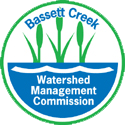News
The New Years Resolution Children Wish You'd Make
Fri, Jan 13, 2017Just ask young children. They know, intuitively, that water is crucial for sustaining life. The good news is that we can resolve to do one simple thing to keep water clean—keep the streets where we live clean all year round. And surely, this New Year’s resolution is easier to keep than eating well and exercising.
Why is keeping the streets clean so important? Simple. Stormwater runoff, or water from rain or melting snow that “runs off” across the land instead of seeping into the ground, is not cleaned in any way before it flows into the nearest stream, creek, river or lake, carrying the debris it picks up along the way directly into our waters. Another term for stormwater runoff is “nonpoint source pollution” because, unlike a factory pipe or “point source pollution,” this type of pollution is hard to pinpoint.
In the winter, salt and sand to keep roads and sidewalks safer are major pollutants. During the rest of the year, other materials like sediment (from construction sites, bare soil, or agricultural land), pet waste, grass clippings and leaves are major culprits for harming our waters.
Polluted runoff generally happens anywhere people use or alter land. In urban and suburban areas, very little of the water that falls on hard surfaces like roofs, driveways, parking lots or roads actually seeps into the ground. These impervious surfaces create large amounts of runoff that picks up pollutants. The runoff flows from gutters and storm drains to streams.
The quantity of stormwater is also a problem. Runoff, in large volumes, not only pollutes, but erodes streambanks. The mix of pollution and eroded dirt muddies the water and causes even more problems downstream. Because more water runs off hard surfaces, developed areas can experience local flooding. The high volume of water also causes streams banks to erode and can harm aquatic life.
Polluted water creates numerous costs to the public and to wildlife. As the saying goes, “we all live downstream.” Communities that use surface water for their drinking supply must pay much more to clean up polluted water. Polluted water hurts the wildlife in creeks, streams, rivers and lakes. Dirt from erosion, also called sediment, often has pollutants attached to the dirt particles, and it can cover up fish habitats. Fertilizers, leaves and grass clippings nutrients which cause too much algae to grow in lakes and streams, which also hurts wildlife by using up the oxygen they need to survive. Soap (from car washing) hurts fish gills and fish skin, and other chemicals damage plants and animals when they enter the water.
Residents who keep their streets clean and use less salt in the winter can show their good practices by placing a pin where they live on a new display developed by the Bassett Creek Watershed Management Commission. Look for the display at your next community event and help us raise awareness and create a network of homeowners honoring water and future generations!

